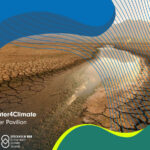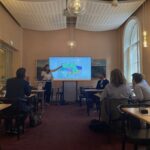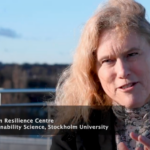Following the fourth Planetary Security Conference, the Stockholm Climate Security Hub reflects on the changing debate around climate security. A Q&A with Malin Mobjörk of the Stockholm Peace Research Institute (SIPRI) and Karl Hallding of the Stockholm Environment Institute (SEI).
Take-aways from the Planetary Security Conference 2019: New nuances in the climate security debate
-
Q
What changes are you seeing in discussions about climate and security?
A
Malin Mobjörk: I would say that the discussions have moved away from pure awareness raising to more nuanced conversations that increasingly focus on what is doable in terms of responses to climate-security risks.
It’s important to stress that the concept of climate security goes beyond climate change as such: It is in fact about a broad set of challenges linked to global environmental change, such as the loss of biodiversity, or the degradation of natural resources.
That was also a point made by German Chancellor Angela Merkel in her keynote address at the Munich Security Conference that took place just prior to the Planetary Security Conference.
Karl Hallding: When world leaders, like Merkel, frame keynotes around how climate change and other global environmental pressures affect stability and security – using the concept of the Anthropocene – it shows how questions that we have understood in terms of sustainability are now being reframed in terms of security and geostrategy.
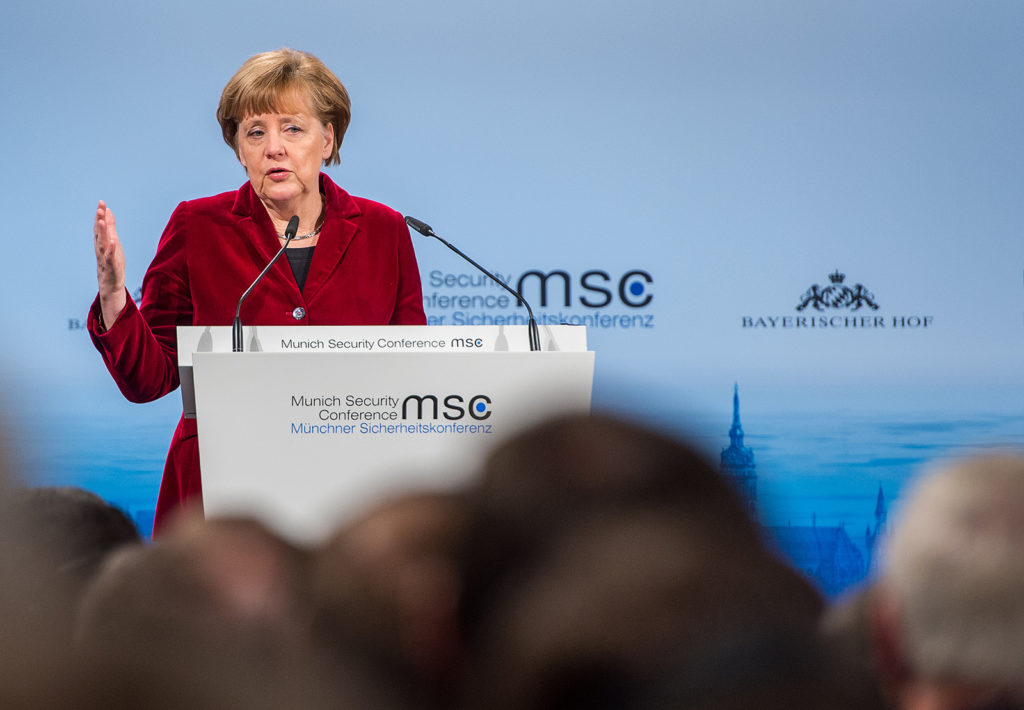
Angela Merkel’s use of “Anthropocene” at the Munich Security Conference was repeatedly noted in The Hague. Photo: Mueller / MSC
The concept of the Anthropocene is proposed by geologists as the advent of a new geological era, leaving behind the Holocene, which was characterized by stable climatic conditions on earth that allowed mankind to flourish. In the Anthropocene, humans are destabilizing these basic conditions, leading to unstable conditions which in turn have geopolitical and security implications.
-
Q
Do you see changes when it comes to who is discussing climate and security?
A
Malin Mobjörk: Because the challenges are broad, so is the field of actors participating in these discussions: They come from foreign policy just as they come from the fields of development, disaster risk reduction, and defence.
With regard to the military I would say that defence actors have been involved in this debate for quite some time now. At least in a US context, both the question of how to reduce the military’s carbon footprint, and that of how climate change may impact military missions have played an important role.
Karl Hallding: My view is that there has been apprehension among green communities against a securitization of the topic – a kind of “don’t cry wolf” concern – and they have not been very visible in the debate about the security implications of climate change. Instead, it is the security establishment that has shown interest in issues like the interrelationship between political disorder and climate change. As early as 2003 the US Department of Defense commissioned a study on the security implications of climate change.
And in 2007 the UN Security Council arranged its first ever debate on the impact of climate change on peace and security, a debate that was very much alive in the years that followed as the security establishment saw new roles for itself in an increasingly climate-insecure future.
However, with Russia’s annexation of Crimea in 2014, the discussion, at least in Sweden, went back to traditional hard security threats. Despite that, I now see a revived interest in non-traditional security issues, for example looking at the role of the military in rescue operations, and also at the question of what climate change may mean in terms of geo-strategic security.
-
Q
What are the different dimensions in discussions about climate security?
A
Karl Hallding: The Planetary Security Conference in the Hague showed a growing recognition among foreign policy and security circles about climate change as a driver or amplifier of natural catastrophes – droughts, floods, weather extremes in general – and the need to prepare for and build capacities for dealing with them.
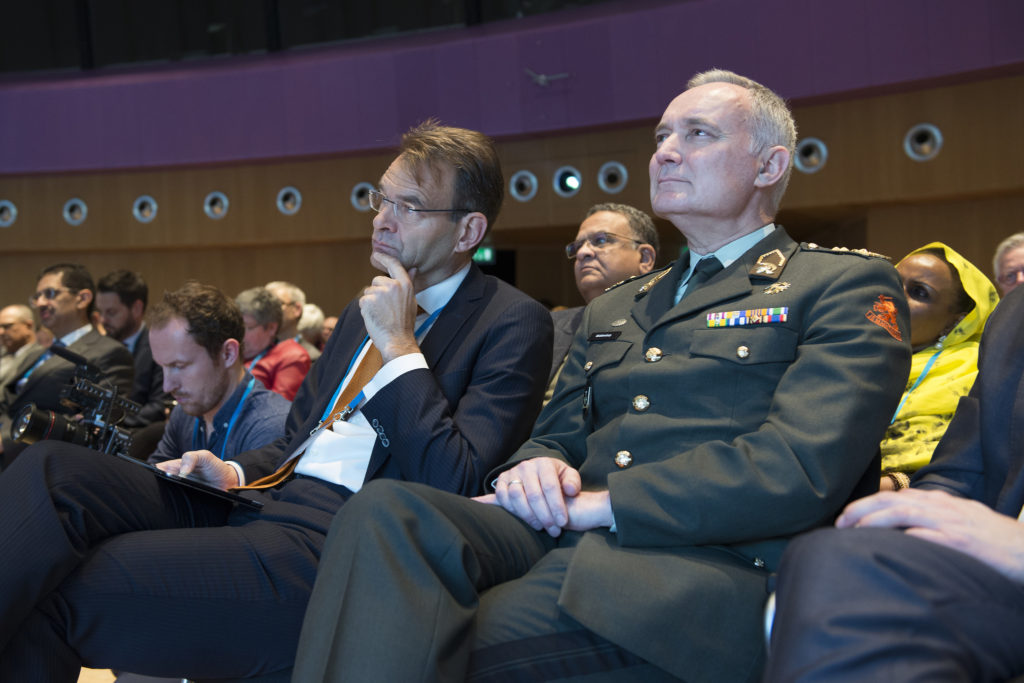
Audience at the Planetary Security Conference. Photo: Flickr/ Ministerie van Buitenlandse Zaken
Questions that were discussed include: how could the UN Security Council play a more active role in preparing for climate driven security challenges? How do we manage shipping routes that open up as a result of the Arctic becoming free of ice? Or imagine an already dry area that has a river running through it: is it possible to establish a river basin commission to manage sparse water before increasing drought leads to conflicts?
Malin Mobjörk: It is a multi-dimensional discussion in which all dimensions are interacting with each other. Take conflict, for example: both violent and non-violent conflicts undermine the ability to manage stress and to adapt to climate change.
If you come in from the climate dimension, it’s worth noting that efforts to mitigate climate change need to be made conflict-sensitive. For example, it is important that local populations benefit from renewable energy projects like large-scale wind farms. Otherwise, what is good for the climate may bring about new forms of tension.


